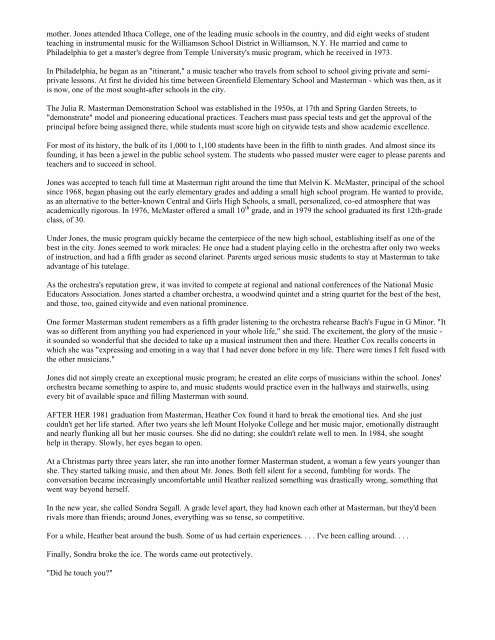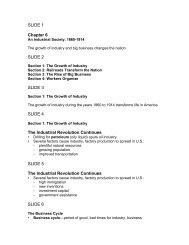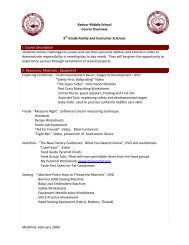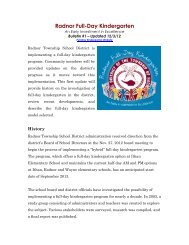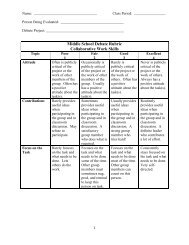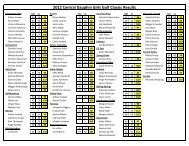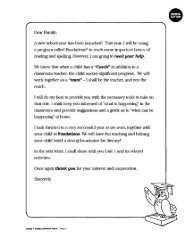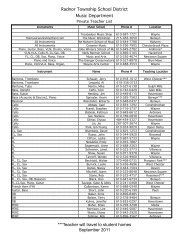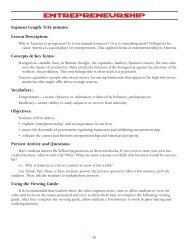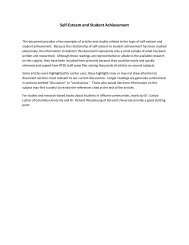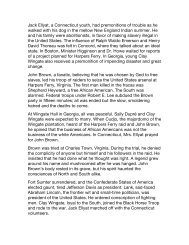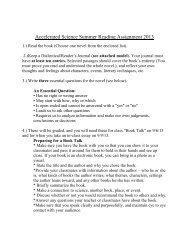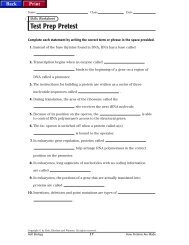WHEN THE MUSIC STOPPED - Radnor School District
WHEN THE MUSIC STOPPED - Radnor School District
WHEN THE MUSIC STOPPED - Radnor School District
- No tags were found...
You also want an ePaper? Increase the reach of your titles
YUMPU automatically turns print PDFs into web optimized ePapers that Google loves.
mother. Jones attended Ithaca College, one of the leading music schools in the country, and did eight weeks of studentteaching in instrumental music for the Williamson <strong>School</strong> <strong>District</strong> in Williamson, N.Y. He married and came toPhiladelphia to get a master's degree from Temple University's music program, which he received in 1973.In Philadelphia, he began as an "itinerant," a music teacher who travels from school to school giving private and semiprivatelessons. At first he divided his time between Greenfield Elementary <strong>School</strong> and Masterman - which was then, as itis now, one of the most sought-after schools in the city.The Julia R. Masterman Demonstration <strong>School</strong> was established in the 1950s, at 17th and Spring Garden Streets, to"demonstrate" model and pioneering educational practices. Teachers must pass special tests and get the approval of theprincipal before being assigned there, while students must score high on citywide tests and show academic excellence.For most of its history, the bulk of its 1,000 to 1,100 students have been in the fifth to ninth grades. And almost since itsfounding, it has been a jewel in the public school system. The students who passed muster were eager to please parents andteachers and to succeed in school.Jones was accepted to teach full time at Masterman right around the time that Melvin K. McMaster, principal of the schoolsince 1968, began phasing out the early elementary grades and adding a small high school program. He wanted to provide,as an alternative to the better-known Central and Girls High <strong>School</strong>s, a small, personalized, co-ed atmosphere that wasacademically rigorous. In 1976, McMaster offered a small 10 th grade, and in 1979 the school graduated its first 12th-gradeclass, of 30.Under Jones, the music program quickly became the centerpiece of the new high school, establishing itself as one of thebest in the city. Jones seemed to work miracles: He once had a student playing cello in the orchestra after only two weeksof instruction, and had a fifth grader as second clarinet. Parents urged serious music students to stay at Masterman to takeadvantage of his tutelage.As the orchestra's reputation grew, it was invited to compete at regional and national conferences of the National MusicEducators Association. Jones started a chamber orchestra, a woodwind quintet and a string quartet for the best of the best,and those, too, gained citywide and even national prominence.One former Masterman student remembers as a fifth grader listening to the orchestra rehearse Bach's Fugue in G Minor. "Itwas so different from anything you had experienced in your whole life," she said. The excitement, the glory of the music -it sounded so wonderful that she decided to take up a musical instrument then and there. Heather Cox recalls concerts inwhich she was "expressing and emoting in a way that I had never done before in my life. There were times I felt fused withthe other musicians."Jones did not simply create an exceptional music program; he created an elite corps of musicians within the school. Jones'orchestra became something to aspire to, and music students would practice even in the hallways and stairwells, usingevery bit of available space and filling Masterman with sound.AFTER HER 1981 graduation from Masterman, Heather Cox found it hard to break the emotional ties. And she justcouldn't get her life started. After two years she left Mount Holyoke College and her music major, emotionally distraughtand nearly flunking all but her music courses. She did no dating; she couldn't relate well to men. In 1984, she soughthelp in therapy. Slowly, her eyes began to open.At a Christmas party three years later, she ran into another former Masterman student, a woman a few years younger thanshe. They started talking music, and then about Mr. Jones. Both fell silent for a second, fumbling for words. Theconversation became increasingly uncomfortable until Heather realized something was drastically wrong, something thatwent way beyond herself.In the new year, she called Sondra Segall. A grade level apart, they had known each other at Masterman, but they'd beenrivals more than friends; around Jones, everything was so tense, so competitive.For a while, Heather beat around the bush. Some of us had certain experiences. . . . I've been calling around. . . .Finally, Sondra broke the ice. The words came out protectively."Did he touch you?"


